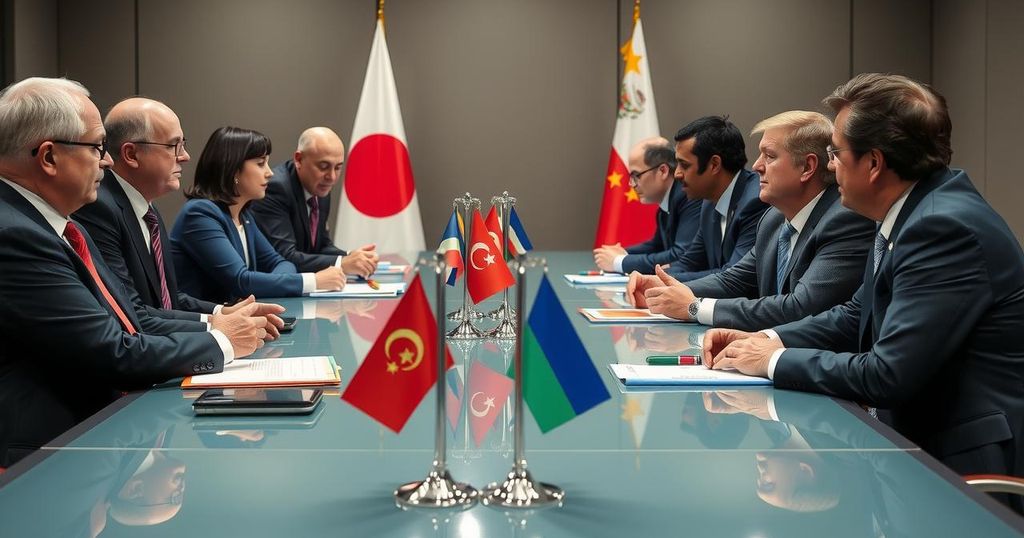Biden Advocates Strategic Approach to Address Growing Alliances Among Adversarial Nations

Prior to Donald Trump’s inauguration, President Joe Biden is urging U.S. national security agencies to develop new strategies to counter the deepening alliances among Russia, Iran, North Korea, and China, highlighting recent military and technological collaborations and the need for coordinated responses to emerging threats.
President Joe Biden is actively prompting U.S. national security agencies to formulate new strategies to address the concerning alliances among Russia, Iran, North Korea, and China prior to Donald Trump’s upcoming inauguration. A recent national security memorandum emphasizes that in light of Iran’s support for Russia’s military endeavors in Ukraine, Russia is reciprocating by providing Iran with advanced military technology such as fighter aircraft and missile defense systems.
Moreover, Russia has initiated a partnership with North Korea, providing resources and technology while recognizing it as a nuclear state. The document also highlights Russia’s joint military operations with China in the Arctic region. Although details remain classified, U.S. officials believe there is a pressing need for a regionally flexible approach that acknowledges the interconnected nature of the threats posed by these nations.
The memorandum outlines a restructuring of U.S. governmental agencies, shifting their focus away from regional separations and toward the broader implications of engagements among these four nations, which span both Europe and Asia. However, the incoming Trump administration has the prerogative to accept or reject the proposed strategies, as they are not binding under his leadership.
Officials from the Biden administration assert that their aim is to provide a set of strategic options to enable the new team to operate effectively from day one. Among the foreseen challenges is the need for coordinated sanctions and export controls, as tensions escalate with North Korean involvement in Russia’s operations. Furthermore, the evolving dynamics suggest that adversaries may embrace an accelerated rate of learning and collaboration, presenting a significant challenge for U.S. policy.
Some officials have raised concerns about the limitations in cooperation among these nations, particularly regarding their failure to support the regime of Bashar al-Assad in Syria. This complex landscape poses critical questions for China regarding its future role within this emerging alliance.
The article discusses the strategic measures that President Joe Biden is advocating in response to the enhanced cooperation among several adversarial nations, namely Russia, Iran, North Korea, and China. As these countries strengthen their ties, the Biden administration aims to prepare new approaches that will effectively counter their influence on the international stage. The potential implications of these alliances include collaborative military operations, sharing of advanced technologies, and escalating global tensions that require coordinated U.S. responses.
In summary, President Biden’s initiative to devise a comprehensive response to the growing relationships among Russia, Iran, North Korea, and China reflects a strategic recognition of the complexities inherent in modern international relations. By restructuring U.S. national security strategies, the administration seeks to provide the incoming Trump administration with viable options that allow for flexibility in policy-making, while anticipating coordinated actions against perceived threats posed by these nations. Strategic cooperation among these adversaries not only complicates U.S. policy but also raises critical questions about global security dynamics and future cooperation among these nations.
Original Source: www.usnews.com








